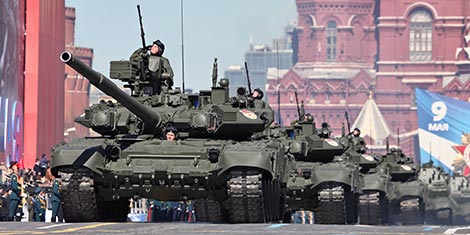
This article was originally published by the European Union Institute for Security Studies (EUISS) in February 2018.
Russia is set to hold presidential elections on 18 March 2018, and Vladimir Putin has expressed his intention to run for another term. His high approval ratings, the vast administrative resources at his disposal and the non-competitive political environment in Russia make the outcome a foregone conclusion. However, if the election result is predictable, it is still unclear what direction the country will take afterwards. In recent years, Russia has resorted more and more frequently to military force to advance its foreign policy objectives. This overreliance on force, however, came with a price tag attached. In this context, it is useful to explore whether Russia’s foreign policy will take a softer and more economic-oriented turn after the elections. Alternatively, if Russia continues down the same path, which factors will be responsible?
